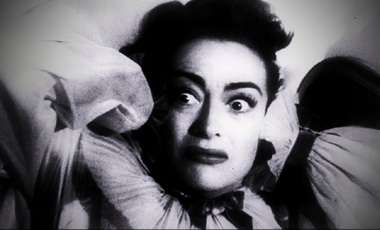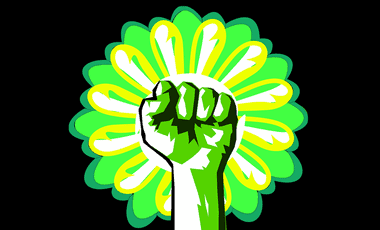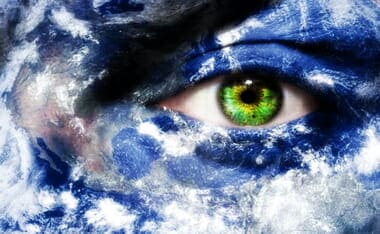A mix of one of Joan Crawford’s most famous acting scenes from Sudden Fear with Greta Thunberg’s climate fear.
Greta Thunberg


Greta Thunberg… Just Another Marxist
“Fossil fuels are literally choking the life from us, that action must be powerful and wide-ranging. After all, the climate crisis is not just about the environment. It is a crisis of human rights, of justice, and of political will. Colonial, racist, and patriarchal systems of oppression have created and fueled it. We need to dismantle them all. Our political leaders can no longer shirk their responsibilities.” — Greta Thunberg
(Remember, these people are allotted a roll in life to lecture us) A good read is this article about Greta:
Greta is eleven years old and has gone two months without eating. Her heart rate and blood pressure show clear signs of starvation. She has stopped speaking to anyone but her parents and younger sister, Beata.
After years of depression, eating disorders, and anxiety attacks, she finally receives a medical diagnosis: Asperger’s syndrome, high-functioning autism, and OCD. She also suffers from selective mutism—which explains why she sometimes can’t speak to anyone outside her closest family. When she wants to tell a climate researcher that she plans a school strike on behalf of the environment, she speaks through her father.
The book Scenes from the Heart (“Scener från Hjärtat,” 2018) recounts these medical difficulties and the events that led to Greta Thunberg’s now-famous “school strike for climate,” in which hundreds of thousands of children have refused to attend school to protest about government inaction over climate change. Greta herself strikes every Friday and spent three weeks sitting outside the Swedish Parliament at the beginning of the school year. Written by her family—mother, father, Beata and Greta—the story is told in the voice of Greta’s mother, the opera soprano Malena Ernman, who was a celebrity in Europe long before her daughter’s fame. Although the book is only available in Swedish for the time being, it is already being translated into numerous languages—a development that reflects the global fascination with Thunberg’s campaign.
We are offered a story of “a family in crisis and a planet in crisis”—two phenomena that are presented as inextricably linked. The book posits that oppression of women, minorities, and people with disabilities stem from the same overarching root problem as climate change: an unsustainable way of life. The family’s private crisis and the global climate crisis, the authors argue, are simply symptoms of the same systemic disorder.
Greta is not alone in her mental suffering, according to the book. Her sister Beata, who was 12 when the book was written, lives with ADHD, Asperger’s syndrome, and OCD. She is prone to sudden outbursts of anger, during which she screams obscenities at her mother. What would normally be a 10-minute walk to dance class takes almost an hour because Beata insists on walking with her left foot in front, refuses to step on certain parts of the sidewalk, and demands that her mother walk the same way. She also insists that her mother wait outside during class—she isn’t allowed to move, even to go to the bathroom. The child still ends up weeping in her mother’s arms.
[….]
I do not wish to suggest that Greta is too young to understand the consequences of her actions, nor that the challenges she faces make her unsuitable to take a stand on political issues, or even to lead a global movement. No one who has heard her address world leaders in impeccable English can doubt that she is very intelligent. Ernman also stresses that her daughter has never felt better than during her campaign for the climate. Greta herself has said that realizing that she could do something about climate change has helped her recover.
I am also not questioning Greta’s role as a public speaker, nor the power of hundreds of thousands of protesting school children, nor that climate change is an existential threat to humankind.
But adults have a moral obligation to remain adults in relation to children and not be carried away by emotions, icons, selfies, images of mass protests, or messianic or revolutionary dreams.
Greta was recently named ”Woman of the Year” by a Swedish newspaper. But she is not a woman, she is a child. It is time we stopped to ask if we are using her, failing her, and even sacrificing her, for what we perceive to be a greater good.

Greta Thunberg Gets “Blue Collar Logic”
Child activist, Greta Thunberg, gave an impassioned speech at the United Nations. It’s a shame that she doesn’t understand how she’s being used. Here’s the Simple Truth.

Sky News’ Andrew Bolt Comments On Greta Thunberg
Sky News host Andrew Bolt has described Greta Thunberg’s address at a United Nations climate event on Tuesday as a “meltdown speech”.